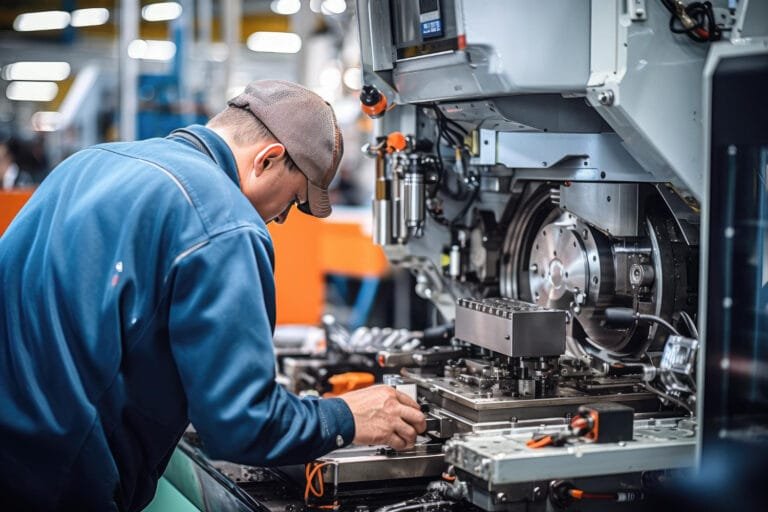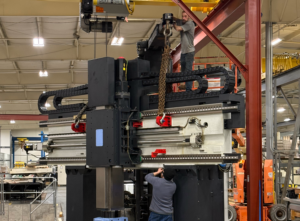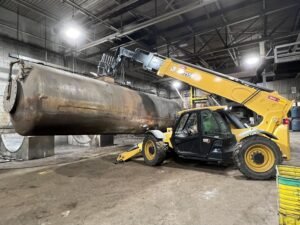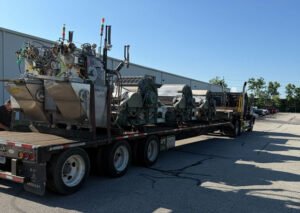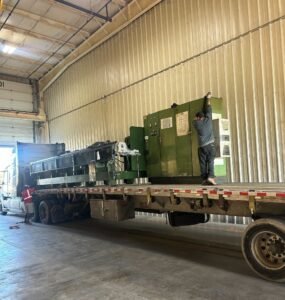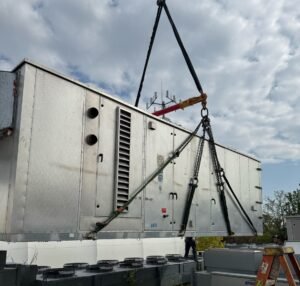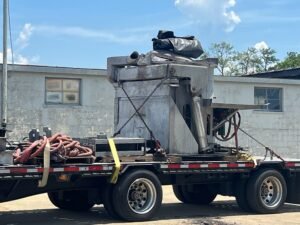Industrial equipment is crucial for the smooth operation of many businesses, from manufacturing plants to construction sites. When this equipment malfunctions or breaks down, it can lead to significant downtime and financial losses. Faced with the decision to either undertake repairs themselves (DIY) or hire professional services, businesses must weigh the pros and cons of each approach. This article will delve into the various aspects of industrial equipment repair, comparing DIY efforts with professional services to help businesses make informed decisions.
Understanding Industrial Equipment Repair
Before comparing DIY and professional services, it’s important to understand the nature of industrial equipment repair. Industrial machinery is often complex and requires specialized knowledge for proper maintenance and repair. Common issues that necessitate repair include mechanical failures, electrical problems, wear and tear, and software malfunctions.
Common Types of Industrial Equipment
- Machining Tools: Lathes, mills, and drills used in manufacturing.
- Heavy Machinery: Excavators, bulldozers, and cranes used in construction.
- HVAC Systems: Heating, ventilation, and air conditioning systems in various facilities.
- Conveyors: Belt and roller conveyors used in material handling.
- Electrical Systems: Motors, generators, and control panels.
Typical Repair Needs
- Mechanical Failures: Broken parts, misalignments, and wear and tear.
- Electrical Issues: Faulty wiring, blown fuses, and malfunctioning control systems.
- Hydraulic Problems: Leaks, pressure drops, and pump failures.
- Software Glitches: Errors in automated control systems and firmware.
DIY Industrial Equipment Repair
DIY repair involves a business’s own staff or technicians undertaking the repair tasks without external assistance. This approach has both advantages and disadvantages that need careful consideration.
Advantages of DIY Repair
- Cost Savings: One of the primary advantages is the potential for cost savings. By avoiding professional service fees, businesses can reduce their repair expenses.
- Immediate Response: In-house technicians can often respond more quickly to equipment issues, minimizing downtime.
- Familiarity with Equipment: In-house staff are often more familiar with the specific equipment and its operational history, which can aid in diagnosing and fixing problems.
Disadvantages of DIY Repair
- Lack of Expertise: Industrial equipment is complex, and in-house technicians may lack the specialized knowledge required for certain repairs.
- Risk of Further Damage: Inadequate repairs can lead to further damage, potentially increasing repair costs and downtime.
- Safety Concerns: Improper repairs can pose safety hazards to workers, leading to accidents and injuries.
- Time-Consuming: DIY repairs can be time-consuming, particularly if the staff are not experienced in handling the specific issue.
Necessary Skills and Tools
For businesses considering DIY repairs, it is essential to ensure that their technicians possess the necessary skills and tools. Here are some key requirements:
Skills
- Technical Knowledge: Understanding the operation and components of the equipment.
- Diagnostic Skills: Ability to identify and diagnose the root cause of issues.
- Repair Techniques: Proficiency in repair techniques specific to the equipment type.
- Safety Procedures: Knowledge of safety protocols to prevent accidents.
Tools
- Diagnostic Equipment: Tools for testing and diagnosing issues, such as multimeters and oscilloscopes.
- Repair Tools: Wrenches, screwdrivers, pliers, and specialized tools for specific equipment.
- Replacement Parts: Availability of spare parts for quick replacements.
- Safety Gear: Personal protective equipment (PPE) such as gloves, goggles, and safety harnesses.
Professional Industrial Equipment Repair
Professional repair services involve hiring external experts or companies specializing in industrial equipment maintenance and repair. This approach also has its own set of pros and cons.
Advantages of Professional Repair
- Expertise: Professional technicians have specialized training and experience, ensuring high-quality repairs.
- Access to Advanced Tools: Professionals often have access to advanced diagnostic and repair tools that may not be available in-house.
- Warranty and Guarantee: Many professional services offer warranties or guarantees on their work, providing peace of mind.
- Compliance and Safety: Professionals adhere to industry standards and regulations, ensuring repairs are compliant and safe.
Disadvantages of Professional Repair
- Higher Costs: Professional services can be expensive, particularly for complex or urgent repairs.
- Potential Delays: Scheduling and waiting for a professional can lead to delays, increasing downtime.
- Lack of Immediate Availability: In urgent situations, waiting for professional service can exacerbate the problem.
Criteria for Selecting a Professional Service
When opting for professional repair services, selecting the right provider is crucial. Here are some factors to consider:
Experience and Expertise
- Industry Experience: Ensure the provider has experience in your specific industry and with your type of equipment.
- Certifications: Look for certifications and qualifications that indicate expertise.
Service Offerings
- Comprehensive Services: Choose a provider offering a wide range of services, from diagnostics to repairs and maintenance.
- Emergency Services: Check if they offer emergency repair services for urgent situations.
Reputation and Reviews
- Customer Reviews: Read reviews and testimonials from other businesses to gauge the provider’s reliability and quality of service.
- References: Ask for references and speak with other clients to get a sense of their experiences.
Cost and Warranty
- Transparent Pricing: Ensure the provider offers transparent pricing with no hidden costs.
- Warranty: Check if they offer a warranty on their repairs, which can provide assurance of their service quality.
Decision-Making Factors
When deciding between DIY and professional repair, businesses should consider several factors:
Equipment Complexity
- High Complexity: For highly complex equipment, professional services are often the better choice due to the specialized knowledge required.
- Low Complexity: For simpler equipment, in-house technicians may be able to handle repairs effectively.
Downtime Impact
- High Impact: If downtime significantly affects operations, professional services can minimize the downtime and its associated costs.
- Low Impact: For equipment that is not critical to operations, DIY repairs may be more feasible.
Cost Considerations
- Budget Constraints: If budget constraints are a major concern, DIY repairs can offer immediate cost savings.
- Long-Term Costs: Consider the long-term costs, including potential additional repairs and downtime, when opting for DIY.
Safety and Compliance
- Safety Risks: For equipment posing significant safety risks, professional repairs ensure compliance with safety standards.
- Regulatory Compliance: Ensure repairs meet industry regulations and standards, which professionals are typically well-versed in.
Resource Availability
- In-House Resources: Evaluate whether in-house staff have the necessary skills, tools, and time for repairs.
- External Resources: Professional services provide access to specialized expertise and tools.
Conclusion
Choosing between DIY and professional repair for industrial equipment is a critical decision that impacts a business’s operational efficiency, costs, and safety. While DIY repairs can offer immediate cost savings and quicker response times, they also carry risks related to expertise, safety, and potential for further damage. On the other hand, professional industrial equipment repair services provide specialized knowledge, advanced tools, and compliance with safety and regulatory standards, albeit at a higher cost.
Businesses must carefully evaluate the complexity of their equipment, the potential impact of downtime, budget constraints, safety considerations, and the availability of resources when making this decision. By weighing these factors, businesses can make informed choices that align with their operational needs and long-term goals.
Ultimately, a balanced approach that combines the strengths of both DIY and professional repair may be the most effective strategy. For routine maintenance and minor repairs, in-house staff can be trained and equipped to handle the tasks efficiently. For complex, critical, or high-risk repairs, partnering
